
Want a second opinion on how badly Windows 8.x is doing?
This year’s Build developer conference is set to get underway shortly, and Microsoft will, among other things, be introducing a major update for Windows 8.1 designed to make it more appealing to keyboard and mouse users.
Yesterday I reported on NetMarketShare’s breakdown of desktop operating system market share in March, which showed XP losing some ground, Windows 7 growing nicely, and Windows 8.x creeping upwards still, but very slowly. Today StatCounter releases its figures, and while the percentages are different, the overall picture remains just as gloomy for Microsoft’s tiled operating system.
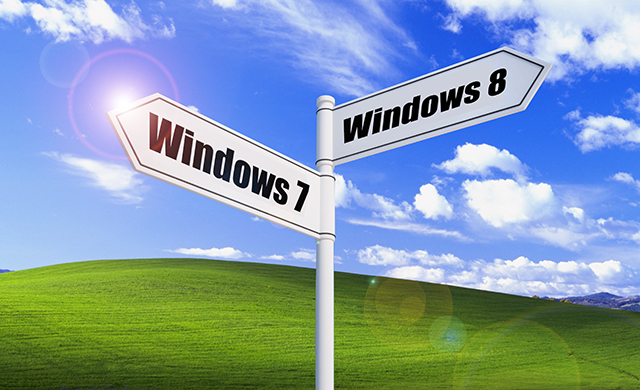
Where are XP users moving to? Windows 7
In a week Windows XP will reach its end of life. Microsoft has done its best to tell people they need to switch operating systems or face the consequences, but if the latest desktop OS share trend from NetMarketShare is anything to go by, Windows XP users really don’t seem too worried. In March, XP’s share dropped just 1.84 percent, from 29.53 percent to 27.69 percent. Hardly the signs of a mass exodus, although at least the share fell this month, unlike the previous two, when XP usage actually went up.
Microsoft has, naturally enough, pushed XP users towards upgrading to Windows 8.x, or "new Windows" as the tech giant likes to refer to it, but Windows 7, or "old Windows" proved yet again to be far the bigger draw.
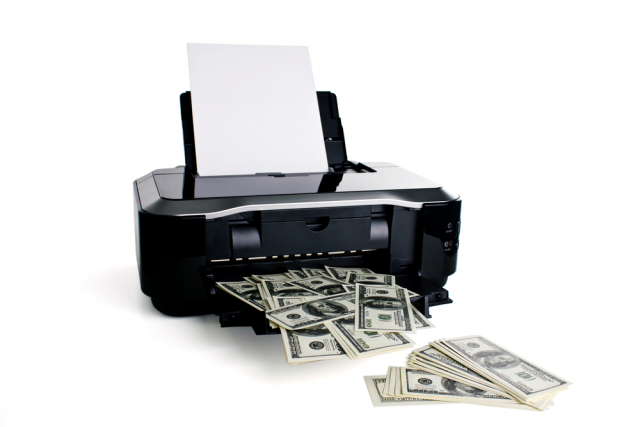
Switching to Garamond could slash US government printing costs by almost a quarter
A Pittsburgh teenager has worked out that the US government could slash millions from its costs by making a simple change to IT policy. Suvir Mirchandani's suggestion is laughably simple, but it is one that should hold water -- although I'll admit to not fully following through with the math to determine the precise levels of savings that could be achieved. Suvir proposes that a move away from the most commonly used fonts, such as Times New Roman, in favour of a lighter typeface such as Garamond could reduce the US government's printing costs by a colossal 24 percent.
There can be few printer owners who have not cursed the price of ink -- it is one of the costs of ownership that can creep up on the unsuspecting printer user. You might think that the paperless office was, if not here, well on its way to arriving. It's something that has been talked about for years now, and there has been a general move toward eliminating some paper versions of documents in favour of electronic copies. But there are still an unbelievable number of printed documents out there.

5 features of Windows that need defenestrating -- including IE
Defenestrating? Pretentious? Moi?! How could you?!
Don't get me wrong, I love Windows. A fanboy I am not -- I'll quite happily pick holes in Microsoft's operating system -- but for the most part I do love it. While I have a great deal of time for Windows, it doesn’t mean there isn't room for improvement. By this I don’t mean that Microsoft needs to bring back the Start menu or start copying features from OS X or Linux, rather that it's time to have spring cleaning. In just over a week, Windows XP will be consigned to the OS graveyard, but what about Windows 8.1? The latest version of Windows doesn't need to be killed, but there are lots of features that need to be put out of their misery.

iTranslate provides translation services for Windows 8 and RT devices
Sonico GmbH has launched a Windows App version of its translation software with the release of iTranslate 1.1 for Windows RT and 8. The app follows the recent release of iTranslate Voice 2 on the iPad and iPhone.
As the name implies, iTranslate doesn't come with any support for translating phrases spoken into the microphone; instead users, must type their word or phrase into the box, and then wait for the app to translate it.

Microsoft wants to buy your Windows XP computer for $100, but there is a catch
It used to be that people would upgrade their computers when they wanted to. However, there also used to be more compelling reasons to upgrade. Personal computers used to see huge hardware improvements every year -- faster processor, more RAM, etc. Consumers saw hard evidence of why an upgrade was necessary.
Nowadays however, computers have become "fast enough" -- they are lasting longer and longer. More importantly, people actually saw a benefit in upgrading to Windows 95, 98 and XP. Conversely, there haven't been huge selling points to upgrade to Windows 7 or 8.x for the average casual computer user. Microsoft is ending Windows XP support on April 8th, so it wants consumers to upgrade. In a potentially desperate move, the company announces that it will buy your old, dust-filled XP machine for $100 -- a crisp Benjamin.

Mozilla's Metro move shows that modern apps belong in the mortuary
Just a few days ago, Mozilla announced that it would not bother releasing a modern version of Firefox for Windows 8.x -- this in spite of the fact that a team of developers have been working on it for over a year. It seems that the company behind the famous foxy browser regards the modern interface with just about as much disdain as everyone else. So much contempt, in fact, that it can't even bring itself to use the proper terminology: "I know [Metro is] not what Microsoft calls it anymore, but it remains how we talk about it in Mozilla", sneers Johnathan Nightingale, Vice President of Firefox.
Despite acknowledging that Mozilla is no longer "tiny" (far from it, really), Nightingale says that the company needs to focus its attention on those projects that will have the most impact. According to StatCounter, Firefox still manages to grab over 20 percent of the desktop browser market, dropping very slightly to just over 19 percent once tablets are factored in. But moving forward, there will simply be no more work carried out on the modern version of the browser. It is being abandoned like the runt of a litter.

Mozilla disses Microsoft -- cancels Modern UI version of Firefox for Windows 8.x
The hatred of Modern UI and its associated Start Screen is well documented. Many users dislike the full-screen Windows apps, stating they are less productive with them. There can be truth to that -- working with multiple open programs and apps simultaneously can be problematic. Not to mention, there are very few apps compared to legacy programs. Some users may feel that if they cannot go "all in" on Modern UI, they don't want to use it at all.
It is hard to blame developers for not embracing Modern UI -- Microsoft hasn't even done so with Office. One notable app that has been conspicuously absent, is Firefox. Mozilla developers have been working on it, but a final, stable version never came to fruition. Sadly, Mozilla announces that it is cancelling the project, dealing Microsoft's Windows 8.x a significant blow.

Windows 8.1 Update is the final nail in the coffin
Windows 8.1 Update. Windows 8.1 Update 1. Windows Feature Pack. Windows 8.1 Service Pack 1. Call it what you will, the big update to Windows 8.1 is just around the corner and it promises much. Or at least it did. It was revealed yesterday that it was possible to get hold of the update ahead of schedule with a quick and simple registry edit -- or by downloading the necessary files from the numerous mirrors that quickly sprang up -- and it appears that this is final code; the RTM version that will hit Windows Update for the masses very soon. Was it worth the wait?
This update was Microsoft's chance to put things right, to win back people who hated Windows 8 and have failed to be won over by 8.1. I make no secret about having a love-hate relationship with Windows 8.x. There have been parts of Windows 8 -- particularly the Metro/modern side of things -- which I disliked from day one, but for the most part I have been able to just avoid using them. Microsoft has even acknowledged that people want to avoid the Start screen whenever possible, and has provided tips on how to do so.
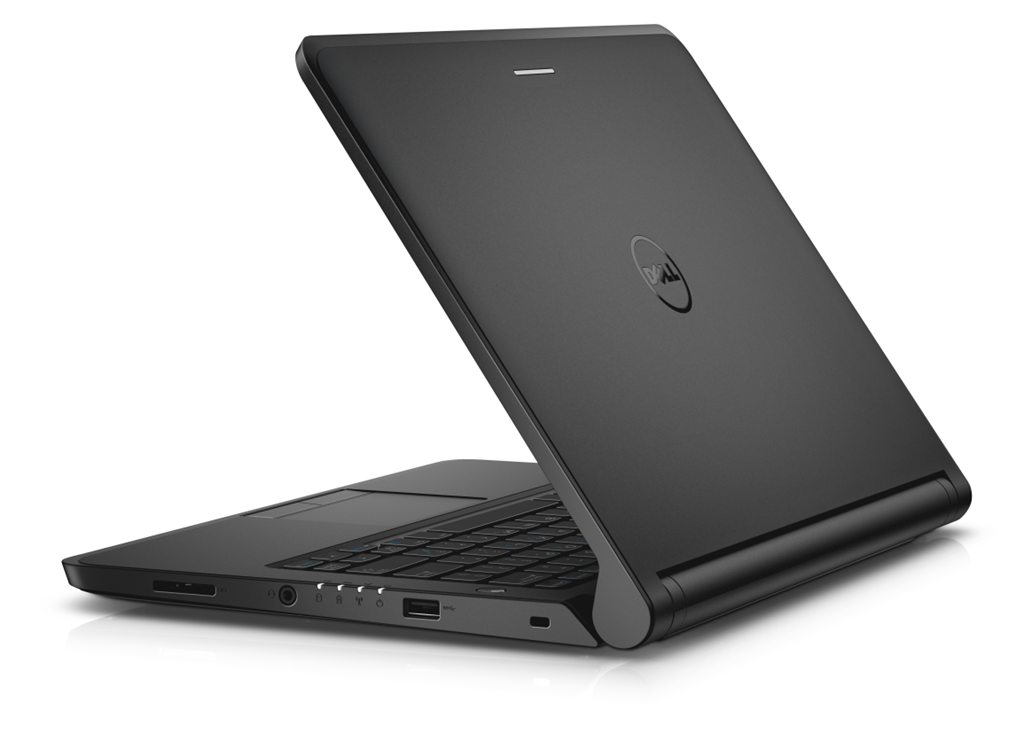
Dell Latitude 13 Education Series -- Windows battles Chromebooks for the classroom
Google's Chromebooks are becoming synonymous with education. Schools are embracing them for the low cost and ease of use. It's hard to argue with that, but I am dubious that it is the best choice for students.
A Windows PC is still the best option for readying a student for the world of business. Outlook, Excel, Access -- these are the programs that a future successful person will learn. Today, Dell announces a new laptop that is focused on education and gives Chromebook a run for its money -- the Latitude 13 Education Series.

Where have all the fanboys gone? Is brand loyalty dead and buried?
This is a personal account of the way I have noticed the technology markets changing over the years. It is not gospel, and you are welcome (encouraged, if you like) to disagree… It's not all that long ago that brand loyalty was a given; it was almost the default setting for many people. If you got into computing -- and it was something you "got into" rather than just having as part of your life -- you stuck loyally to whatever brand you chose at the start. We could go back to the 70s and look at the birth of personal computing, but as this is my personal account, we'll have to start in the 80s.
I did just manage to sneak into the 70s -- being born in 1979 puts me in the difficult-to-comprehend position of being 34 years old but having seen five decades -- but an interest in computing didn't emerge until some time in the late 80s. I remember there being several computing camps: BBC, Amstrad, Spectrum, Vic and Commodore to name a few. My decision was made for me at an early age when my dad decided to invest in a Commodore 16 Plus 4 (the Plus 4 referring to the fact that the OS featured four built-in applications including a spreadsheet tool, the absurd simplicity of which was not lost on me even at a young age).

For the second month in a row, Windows XP shows stronger growth than Windows 8.x
It's a new month and so once again NetMarketShare reports desktop share for all of the major operating systems. What's interesting this month is all versions of Windows showed fairly minor changes. Whether dropping or gaining, the differences in share were minimal.
However, one inescapable truth is clear from the figures. While Windows 8.x might finally have shifted 200 million licenses, use of the OS has pretty much plateaued. In February, Windows 8's share declined from 6.62 percent to 6.38 percent, a drop of -0.24. Windows 8.1 increased shared from 3.94 percent to 4.30 percent, rising by 0.36. Combined, Windows 8.1 grew by just 0.12 percent.
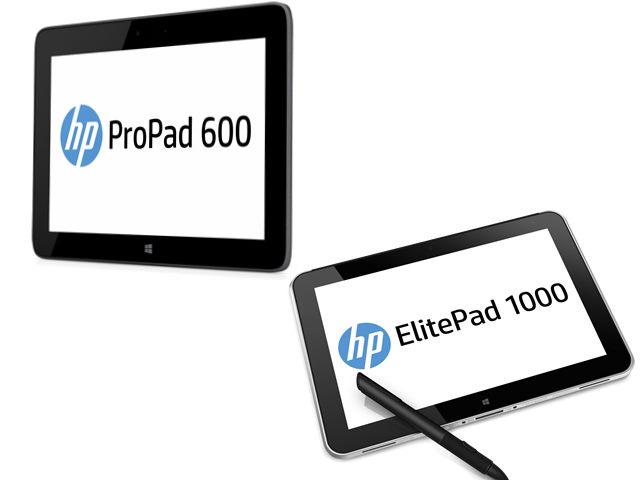
HP boosts its mobile business device portfolio with ElitePad 1000 G2 and ProPad 600
There have been a lot of interesting announcements made at MWC this year, and HP is one of several companies making it clear that business users have not been forgotten. The new HP ProPad 600 has been unveiled alongside an upgraded HP ElitePad 1000 G2, and both have been designed with mobile computing in mind.
Both tablets run Windows 8.1 and the ElitePad 1000 G2 picks up where the HP ElitePad 900 G1 left off. The hardware is impressive enough, but there is a strong focus on battery life and portability.

The most popular stories on BetaNews this past week February 16 -- February 22
Another week, another spate of security related news. In the latest of a recent run of high-profile hacks, Kickstarter announced that it had been hacked, and it was discovered that ASUS routers could be sharing files with more people than users intended. Google is looking to bolster online security with its latest acquisition -- audio-based authentication outfit SlickLogin, while Microsoft's latest partnership with DocuSign looks set to make digital signatures in Office simpler and more secure. If you were under the impression that app security was generally increasing, think again; a new study shows that an almost unbelievable 96 percent of applications have security issues.
Brian got his hands on the Lenovo Miix 2 and was reasonably impressed by what he saw. He also unboxed the much touted Nokia Lumia Icon and found it to be not dissimilar to the 928 -- no bad thing. Anyone looking for an entry-level 4G smartphone now has the Android-based Samsung Galaxy Core LTE to look forward to, complete with "Jelly Bean Plus".
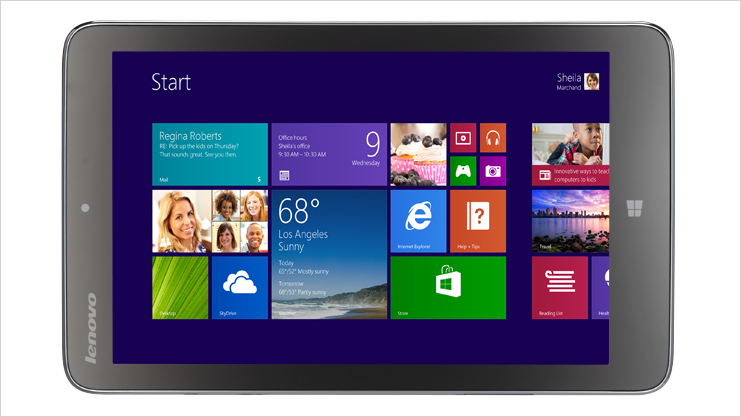
Lenovo Miix 2 8 -- Windows 8.1 tablet with an 8-inch screen done right [Review]
To say Windows 8.x is a controversial operating system is an understatement. Heck, it is downright polarizing, causing a schism between users that love it and others that hate it. It has arguably set Microsoft back and potentially damaged both the Microsoft and Windows brands. This is both disappointing and sad as Microsoft is a story-booked American darling that has enjoyed years of success and domination.
I'll admit, while I loved Windows 8.1 at first, I soured on it once I noticed an impact in my productivity. Performing a balancing act between the classic UI and Modern one, is maddening. It was so distressing to me, that I actually turned my desktop into a Hackintosh. While Linux distributions are my go-to choice, I still have a need for some other software, such as Office, and OS X meets that need. But Windows 8.1 isn't all bad, it truly shines in one place -- tablets.
